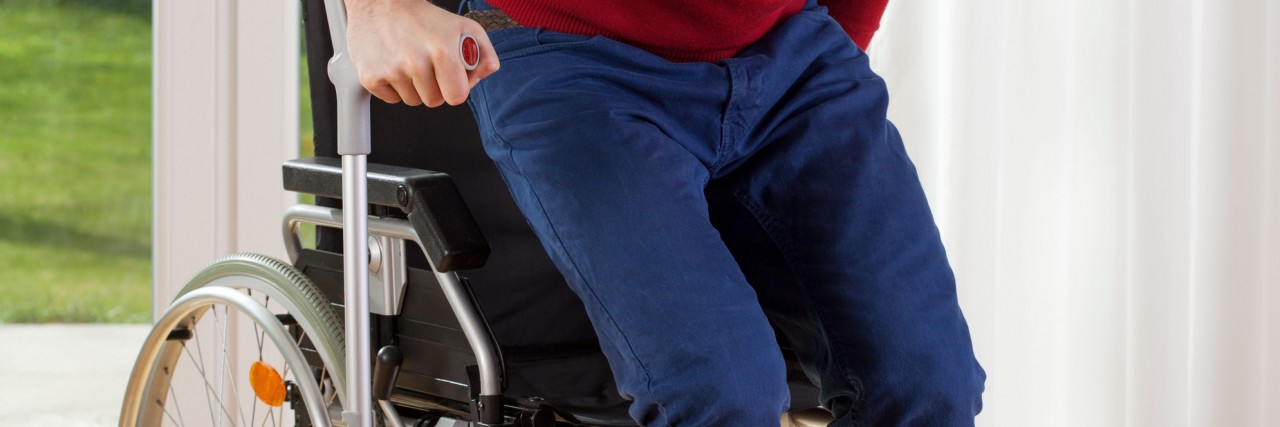A fellow activist recently asserted that the well-being of the disability community depends on catching disability “fakers.” She cited concerns of fakers deterring resources from “real” disabled people, mocking their experiences, and negatively misrepresenting the disability community. While I wholeheartedly agree with the values that led to her concern, her words filled me with anger and disbelief. I fear that the well-intentioned hunt for individuals faking disabilities causes incredible harm to disabled people.
Able-bodied individuals who fake disability for financial, emotional, or physical gain do exist, and their actions can negatively impact disabled people. Still, I hope that the disability community can attempt to untangle the messy knot of actual fraud, misunderstanding of non-apparent disabilities, and skepticism of apparent disabilities. My personal experience of disability self-advocates and allies questioning the legitimacy of my disability reveals several ways in which trying to catch disability fakers reinforces ableist ideology.
1. Outside judgments about who has a disability take agency away from disabled people. Making the assumption that anyone other than disabled people (and possibly their doctors and family members, but we’ll get to that) has the right to decide who is disabled positions able-bodied people as more knowledgeable about disability than the individuals who live it every day. Disabled people themselves are the only ones who understand how and why they came to identify as disabled. Although my illnesses began to present themselves over 15 years ago, I only recently began to identify as disabled, precisely out of fear that I was not “disabled enough.” Before my condition progressed to needing mobility devices, I feared the backlash of others questioning my identity despite being disabled according to functional definitions. I hope that advocates can trust disabled people as the experts of their own experiences.
2. Focusing on catching people faking disability can create barriers to disabled people receiving life-saving medical care. I only started to receive treatment for my diseases in the last two years, due to the rampant misperceptions about disability imposters among the medical community. Specialists blamed me and claimed I faked my symptoms for psychological reasons. Numerous neurologists and cardiologists turned me away from care to focus on people with “real” diseases.
I believe that stereotypes against marginalized communities fuel the mistrust of disabled people, especially those marked by their age, gender, sexual orientation, religion, race, and ethnicity. For instance, a hospital social worker said that my symptoms, whether intentionally faked or unconsciously produced, must stem from a mental illness because I am a young, queer woman. Since finding a team of doctors who finally believed me, I have received amazing, and much needed, medical care. After incredible persistence, I finally received diagnoses and treatment for numerous significant physical conditions that went ignored by the medical community for over a decade.
3. Questioning the legitimacy of disability contributes to the vulnerability of disabled people. My physical abilities fluctuate significantly, and many of the reasons I use a wheelchair are not apparent to onlookers. Although I can stand and walk very short distances, the pain, fatigue, exercise intolerance, and risk of fainting make me unsafe after just a couple minutes. I fear the judgments of people who see me stand from my wheelchair to reach an item on the shelf or walk to the back of my car to set up my wheelchair. In trying to make sense of what may seem to be conflicting cues about my functionality, some people assume I must be faking my disability. I continually question how to move and look based on my abilities and the space that I inhabit on any given day, to avoid attacks on my legitimacy as disabled. For many disabled people, the performance of “disabled norms” becomes part of daily survival to avoid skepticism, devaluation, and violence.
In my personal experience, trying to catch people faking disability is more likely to hurt than help the disabled community. The physical health, mental health, and safety of disabled people must take priority. Rather than trying to call out individuals who defy expectations of disability, disability advocates need to deconstruct their own ableism that reinforces the oppression of disabled people.

